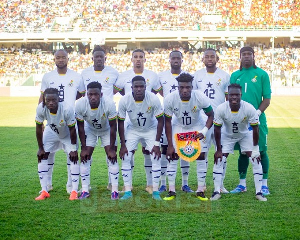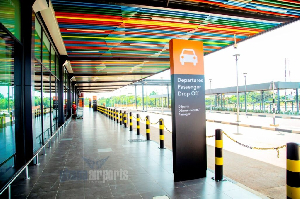Ghana will technically not have major interruptions in the supply of electricity any more because of relative self-sufficiency achieved by the Volta River Authority (VRA).
By the end of this month (September), the Aboadze Thermal Plant would be producing 550 megawatts of thermal capacity which, complemented by production from Akosombo, will ensure technical self-sufficiency for the country.
According to the report carried by the state-owned daily Graphic, VRA chief executive, Dr. Charles Wereko-Brobby said, ?the prudent management of our power supply being technically self-sufficient is quite different from operational self-sufficiency?.
He explained that it is better sometime to import power from neighbouring Cote d?Ivoire because depending on prices of crude; it is cheaper for Ghana to import than to generate power locally.
Dr. Wereko-Brobby said sometimes it is better to export to Cote d?Ivoire so that the two countries return to the situation of power exchanges that they used to do where decision to import or export was not based on capacity shortage but operational demands and the need to put into the system the cheapest possible power available.
The VRA boss said the West African country ?would not face any power crisis in the immediate future. Indeed, we don?t anticipate that there will be any power crisis for the next decade or two. I think we need to distinguish between the crisis that we have had over the last 15 years with the lake level and the shortage of power that we have also experienced,? he said.
Dr. Wereko-Brobby noted that at the beginning of the year, when the lake level went down, everyone expected that there will be load shedding or a huge power crisis.
He said that though the level was low, with the right operational strategy and support from the government, ?we could avoid load shedding?.
The VRA boss said Ghanaians should be proud that despite all the predictions by so-called technical pundits, the country has not experienced any load shedding this year.
He conceded though that there had been situations when the system had gone down momentarily but noted that such problems had been fixed within a maximum of one hour.
Dr. Wereko-Brobby said measures have been taken to ensure that there is enough thermal capacity in the west to make sure that the Prestea to Obuasi power line will be built and made operational.
This, he said, is also to ensure that the 100 megawatts strategic reserve plant at Tema is in place to enable the authority ?nurse the Volta Lake back into good health?.
Dr. Wereko-Brobby said with these measures, coupled with massive investment to increase transmission network capacity, the authority does not anticipate any power from the lake will be limited to enable the lake ?to grow back gradually to its maximum operating level so that even if there are some droughts, we should not have any crisis?.
















